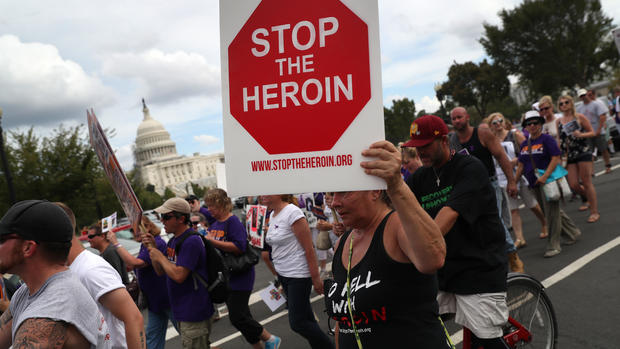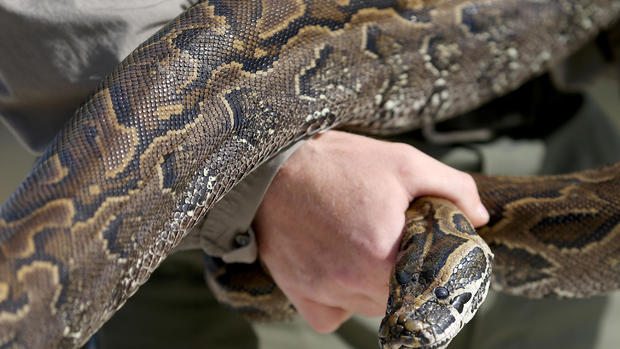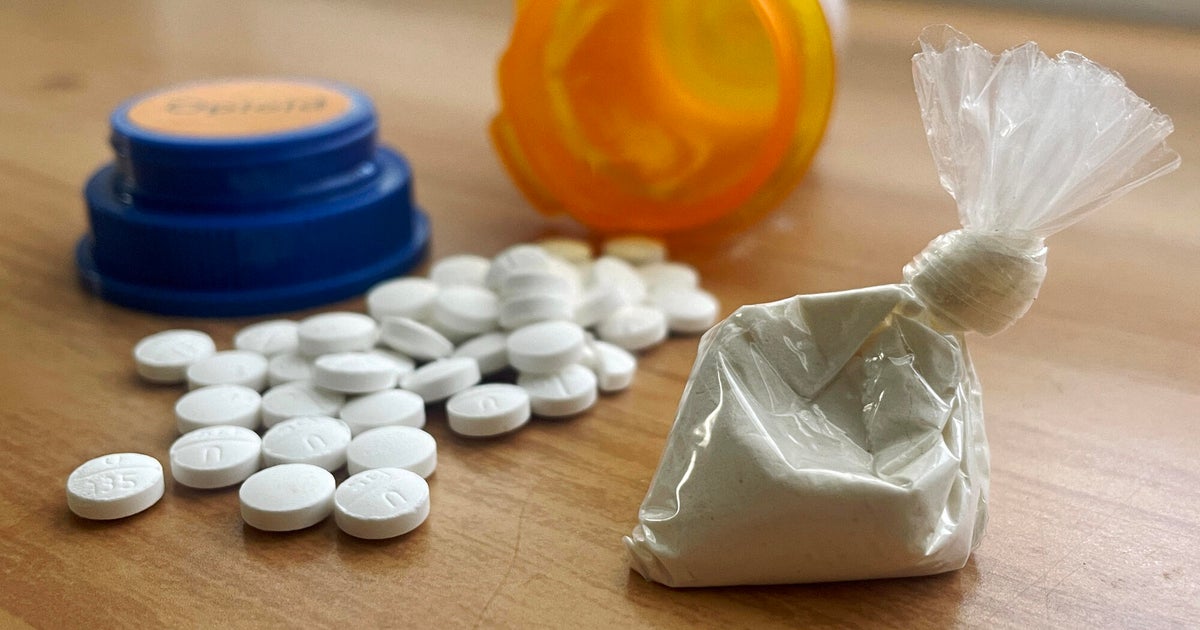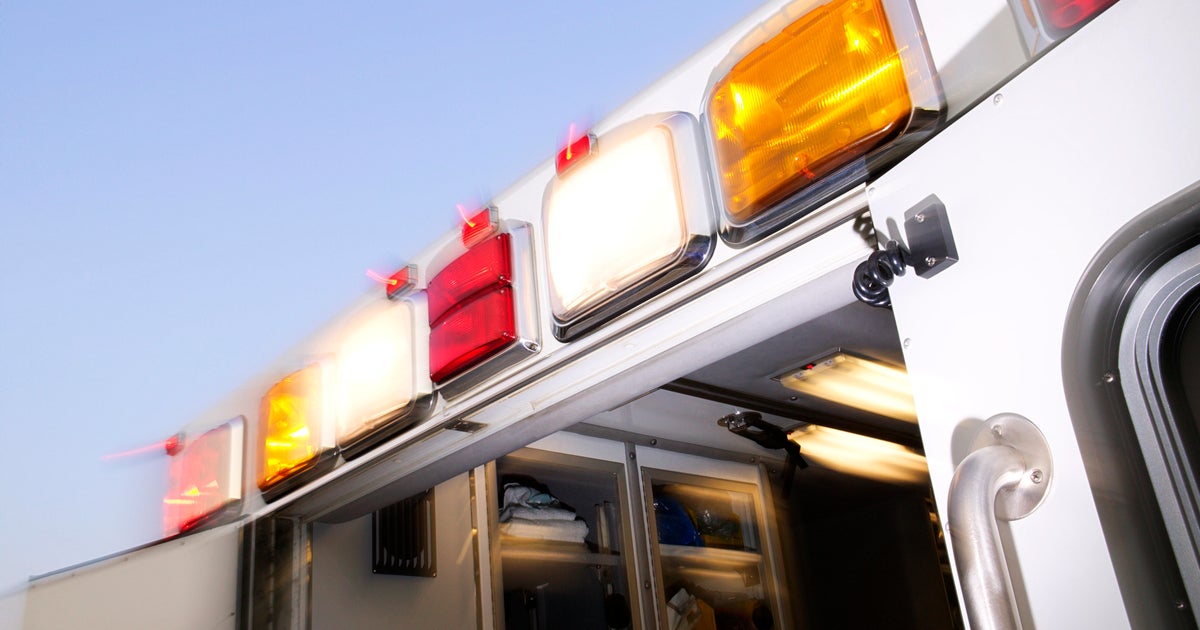Toxic drugs, snake bites, secret agents: Survival tips if you've been poisoned
The risk of death by poisoning may sound like a plot twist out of a spy thriller or cloak-and-dagger mystery novel. But thousands die from poisons, toxins, and venoms every year — usually, though not always, by accident.
Drug poisonings kill about 50,000 Americans a year, more than any other type of accident-related death. Not as common but sometimes life-threatening, insect stings are responsible for as many as 100 deaths annually in the United States, according to data from the Centers for Disease Control and Prevention (CDC). And there are many lesser-known toxic hazards people can encounter at home or in other environments.
"Be aware of poisons around us," said Dr. Michael Lynch, medical director of the Pittsburgh Poison Center at UPMC. "The fact of the matter is almost anything in our lives can be a poison if we are exposed to too much of it, or in a way that wasn't intended," he said.
Below are a number of life-and-death scenarios involving poisons, toxins, and venoms — and how to survive the threat.
Household poisons
Products we use every day may one minute make life easier, and the next act as poisons. Young children are especially vulnerable.
"About 50 percent of our calls [to the poison control center] are for children ages 5 and under," said Lynch. "The most common questions and concerns that we receive revolve around household items."
For kids under 6 years old, about one in three calls to poison control centers in 2015 involved cleaning products, cosmetics, and topical preparations, according to data from the National Poison Data Center. "Soaps, detergents, makeup, and deodorant — things like that most commonly seen around the house," said Lynch.
Thousands of children ingest laundry detergent pods every year, mistaking the colorful packets for sweet treats or toys. Some get sick enough that they need to be hospitalized. "We call them poison pods now," said one mom after her baby was exposed.
While situations where a child has ingested household products might be frightening, often times these exposures don't result in injury or toxicity, according to Lynch. Experts at poison control centers can help families over the phone to determine if a hospital visit is necessary. "That's one of the public health benefits that poison centers offer, to help triage whether or not an exposure is medically concerning," he said.
Parents can help prevent such incidents by storing products in child-proof cabinets at heights kids can't reach.
"You get complacent with some of these chemicals, but people need to be reminded of the hazards that can go along with them," said Dr. Timur Durrani, a toxicologist and preventative medicine physician.
Drug overdose
They may seem harmless, but taking too much of over-the-counter medications like acetaminophen and aspirin is very common and can be serious, said Dr. May Yen, an emergency medicine physician and toxicologist. "Know the dose, and know what you're taking."
Accidental drug poisonings killed more people in the U.S. than car accidents did in 2015, according to data from the CDC. The rise in prescription and illicit opioid-related overdoses bears a great deal of the blame.
Which states had the highest incidence of drug poisoning deaths? West Virginia, New Mexico, and New Hampshire.
If you suspect that you or your child has taken too much of any medication, you need to take certain steps right away.
"Seek help as fast as possible," said Dr. Yen. "Call the poison center at 1-800-222-1222, and they can walk you through whether you need to go to the emergency room," she said. "If the situation is serious enough, call 911 and they can bring you to the emergency room."
Don't make yourself vomit, Yen said, in the case of drugs taken by mouth. "The problem with inducing vomiting is that it can make people aspirate, or having the vomit go back into the lungs. That can make you very sick."
"If you do happen to vomit because what you overdosed on made you feel poorly, that happens. But don't purposely vomit," she advised.
Should you drink a lot of water to dilute the drugs in your system? "It's more of a myth. There's no real use," according to Yen. "There are certain medicines where maybe hydrating is good for an overdose, but in general it won't decrease the amount of toxin or drugs your body absorbs."
Another myth is that doctors will "pump your stomach" once you arrive at the hospital. "Very rarely do we put a big tube down and suck everything back out," said Yen. "The risk of aspiration and lung damage from fluid going back into the lungs is so great that it's not worth it."
Drug poisoning killed 52,404 people nationwide in 2015, which is the most recent year for which data is available from the CDC. Poisoning deaths are classified as either accidental, suicidal, or homicidal.
Murder by poison
How could you tell if you've been maliciously poisoned by someone else?
"Unfortunately, the symptoms are usually vague and non-specific if someone is putting poison in your food," said Yen. You might feel nauseous or have intermittent pain, she said.
It's hard to know if you're being intentionally poisoned by someone based exclusively on the symptoms, toxicologist Durrani agreed. "There are very few toxins with very clear symptoms that point to one type of poison, so you have to have some level of suspicion."
"60 Minutes" reported earlier this year on the case of Vladimir Kara-Murza, a prominent Russian opposition activist who survived suspected poisonings not once, but twice.
"I began to sweat, my blood pressure dropped to basically nonexistent numbers," Kara-Murza told correspondent Lesley Stahl. "And the worst thing — I was unable to breathe."
The symptoms struck out of the blue in May 2015. "I was in a coma for a week, and I don't remember anything for a month and had basically a cascade of all my major life organs failing, one after another; just switching off you know the lungs, the heart, the kidneys," he said.
The cause was initially a mystery. Lab tests finally turned up evidence of heavy metals in his blood, but experts were never able to determine exactly what type of toxin was used.
"I have absolutely no doubt that this was a deliberate poisoning, that it was intended to kill," Kara-Murza told "60 Minutes." After treatment in the U.S., returned to Russia, where he managed to survive a second, similarly suspicious illness early this year.
Experts say that in cases where a possible poisoning is suspected, doctors need to order specific tests to find proof.
"Lab tests don't test for every particular toxin under the sun, so if we have a suspicion that someone is being poisoned, then we'll start to investigate that further and notify the authorities," explained Durrani.
Many different substances have been used in poisoning attacks through the years. "48 Hours" investigated a mysterious 1994 case of a woman killed by nicotine poisoning. Fatal doses of antifreeze have been snuck into people's food or drink, or in one instance into a dose of steroids the victim later injected.
Though intentional poisonings are rare, a person who thinks they're the victim of poisoning should tell their doctor and get a referral to a toxicologist for a very specific workup, said Yen. "But if you feel unwell in an urgent setting, of course go to the emergency room."
Homicidal poisoning killed at least 100 people in the U.S. in 2015, according to the CDC. This statistic might under-represent the actual number of people deliberately killed by poison, because medical examiners need solid evidence to classify a poisoning as homicidal.
Deadly gas
Last month, high levels of carbon monoxide caused several residents to lose consciousness in a luxury New York City apartment building. Firefighters discovered that a defective boiler in the basement was the source of the harmful gas.
Carbon monoxide is a gas with no smell, color, or taste that is produced when fuel is burned in cars, stoves, and engines.
"The levels of [carbon monoxide] were consistent with them definitely passing out after two or three breaths," said FDNY Chief of Department James Leonard.
Poisoning by carbon monoxide is most common in winter months when people spend more time indoors with furnaces running. It's also a leading cause of unintentional poisoning nationwide, according to the CDC.
What should you do if you find yourself in this dangerous situation?
"Run away," said Yen. "If you notice people dropping like flies, even though you want to be a Good Samaritan and try to help them, the safest thing is to remove yourself."
Once in a safe place, you can then call for help from emergency professionals with protective gear.
"You won't be of help to anybody if you're passed out and dead as well," said Yen.
Cases where carbon monoxide concentrations spike to high levels very quickly are rare, said Durrani. "What we normally find is people will be working, or at home for a period of time, and have this come on insidiously."
Carbon monoxide poisoning may cause people to develop flu-like symptoms and a headache, according to Durrani. "You may also feel drowsy and want to lay down."
Carbon monoxide hurts the body because it looks and acts like oxygen to red blood cells, explained Durrani. One important job of red blood cells is to transport oxygen from the lungs to the rest of the body. "But because carbon monoxide is not oxygen, your body can't use it," he said. Over time, oxygen deprivation causes damage to tissues in the body and can be fatal.
Experts say the best way to prevent carbon monoxide poisoning is to install and test carbon monoxide detectors in the home and workplace.
Bees, wasps, and hornets
In May 2016, a man died after bees stung him more than 1,000 times. He was hiking with a friend near Phoenix, Arizona when suddenly a swarm of bees descended and began to attack. When firefighters rescued the man, he was still covered in bees which continued to swarm the rescue vehicle, according the Maricopa County Sheriff's Office. The man later died in the hospital.
What is so deadly about a large number of stings? "A combination of an allergic reaction and a massive exposure can be directly toxic," said Yen.
A single insect sting is usually not that dangerous, unless the person is severely allergic to that particular insect's venom, according to Yen.
"People who know they have a bee allergy, we have epinephrine medication that comes in a prepackaged vial," said Durrani. "We recommend adults and children carry that with them."
The insect sting and venom is not itself a direct cause of the problem, said Durrani. Rather, "it's the body's response to that toxin."
If you find yourself being swarmed, "run away as fast as possible and get yourself to an emergency room. Call 911," said Yen.
To swat, or not to swat? If you an encounter a buzzing mass of insects, or even just one, the safest choice is to remain calm and avoid swatting at the insect. Hitting at a bee, wasp, or hornet increases the chance that it will sting, according to recommendations from the CDC.
Bee, wasp and hornet stings are responsible for about 80 deaths in the U.S. per year, according to a study that reviewed data between 1999 and 2007.
Snake venom
A slithering snake strikes and sinks its fangs into your skin. What do you do?
Immediately following the bite, do not try to kill or remove the snake, advised Yen. "Get away as fast as possible."
Once you're a safe distance away, seek emergency help.
"Don't suck out the venom. That won't work," said Yen. "We also don't recommend a tourniquet." A pressure bandage on the wound may help stop any bleeding, but you don't want to stop blood flow to and from the limb, Yen said.
Other don'ts of snake bites: "There are myths about putting extreme cold or hot to the wound, or electrocuting the wound," said Durrani. "We recommend not to use any of these in the pre-hospital setting."
Snake bite deaths usually occur several hours after the bite. "The amount of time from initial envenomation to death can be well over to 24 hours," said Durrani. "If they're able to get to the hospital within a few hours, we can try to control that extremity wound and prevent the death that would come later on."
When can a snake bite death occur quickly? "People who've been bitten before and have an allergic reaction, or people who've been bitten somewhere where the swelling obstructs their ability to breathe, like in the mouth," said Durrani.
"For the most part, snake bites in North America are caused by the Pit viper," Durrani said. "These are very anxiety-producing situations. If they are able to remain calm, we recommend they do that," he said.
The CDC estimates that 8,000 people are bitten by venomous snakes in the U.S. every year. But only about five will die from the bite, thanks to widespread availability of anti-venom and medical care.
Globally, experts aren't sure exactly how many people perish from snake bites, according to a review of the evidence by experts at the University of Kelaniya in Sri Lanka. One estimate puts the death rate at about 125,000 per year. Areas most impacted by deadly snake bites include South Asia, Southeast Asia, and Sub-Saharan Africa.





